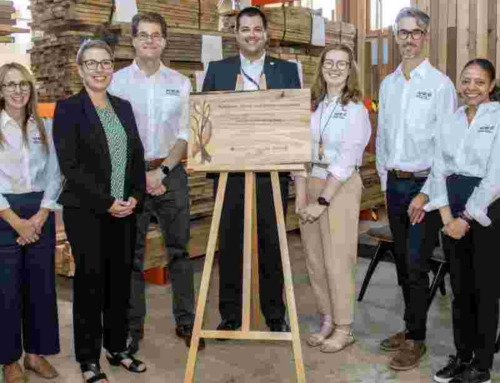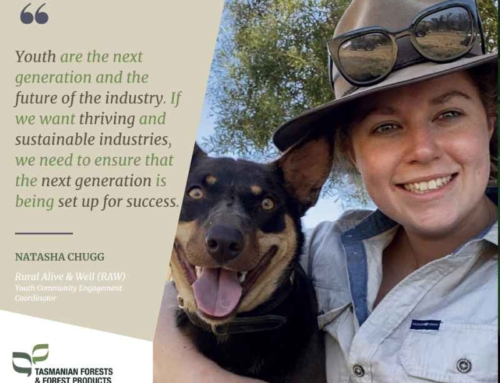Carbon capture a positive for sustainable forests
In celebration of International Day of Forests in March, Tasmania’s largest private forest manager, Forico, released its annual carbon capture statistics, boasting an absorption of 2.3 million tonnes of CO2 equivalent for the last financial year.
This equates to the CO2 emissions from half a million cars driven on our roads for one year.
This calculation is important as carbon emissions are understood to accumulate and negatively impact the environment. Sustainably managed forests offer a natural climate solution to climate change and are the ultimate renewable resource.
Forico Chief Technical Officer, Dr Andrew Jacobs, said the company first calculated the positive impact of its managed estates – both plantations and natural forest areas – and quantified how much they contributed to the environment through the storage of carbon.
“The positive impact of our forests was 5 million tonnes of CO2 equivalent, which represents the greenhouse gas emissions from approximately 1.3 coal fired power plants operated continuously for one year,” Dr Jacobs said.
“We then deducted the quantity of carbon removed when harvesting and processing our plantation forests, which was 2.66 million tonnes of CO2 equivalent.”
Managed forests not only remove more carbon than they emit, but after Forico plantation trees are harvested the carbon is stored within the wood-based products that are produced.
Dr Jacobs said when calculating the overall carbon capture statistics for this financial year, Forico also deducted the emissions generated to operate its sustainably managed plantation forest business throughout the entire supply chain.
“This equated to 0.03 million tonnes of CO2 equivalent,” he said.
Forico Chief Executive, Bryan Hayes, said the announcement of this year’s annual result provided a timely reminder of the natural advantages of wood and its positive contribution to reducing the effects of climate change.
“Apart from the amount of carbon dioxide removed from the atmosphere and stored in trees, processed wood products provide a permanent carbon store,” Mr Hayes said.
“Additionally, forest renewal by replanting our harvested plantations and maintaining and enhancing our natural forests for their conservation and biodiversity value ensures further absorption of carbon dioxide from the atmosphere as the forest growth cycle continues.
“These are important statistics as the global economy moves towards a net-zero carbon future.”
International Day of Forests is celebrated annually on 21 March.
















